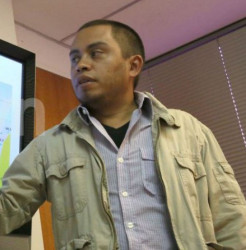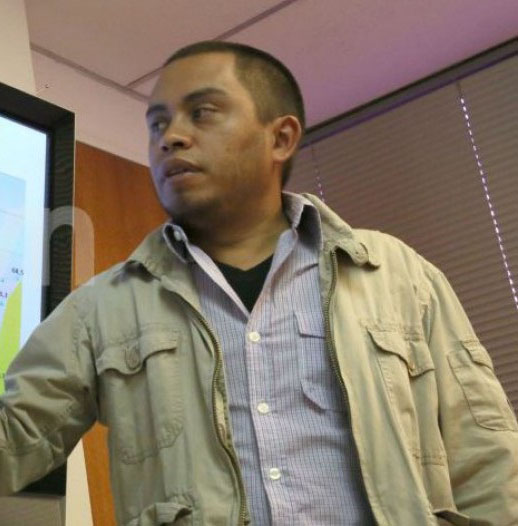CARACAS, (Reuters) – President Nicolas Maduro named a hardline sociologist yesterday to steer Venezuela’s economy during an acute recession that is battering the OPEC nation and has cost the ruling Socialists’ control of congress.

In a major cabinet reshuffle, the president appointed Luis Salas, 39, a professor at the Bolivarian University of Venezuela created by late leader Hugo Chavez, to the top economic position of vice president for the economy.
Salas, who has repeatedly espoused Maduro’s view of an “economic war” waged by right-wing foes and wealthy businessmen against the government, was also named head of a new Ministry for Productive Economy.
The appointment will confound critics who say Venezuela desperately needs a loosening of state controls to revive production in a nation plagued by shortages and the world’s highest inflation rate.
In his writings, Salas has argued in favor of price controls, says inflation is used as a “political tool” to pressure governments, and blames fascism for what he calls economic sabotage.
“We are facing a new economic emergency, and in coming days I will present a rescue plan,” Maduro, 53, a former bus driver and foreign minister, added in a more than two-hour speech on state television announcing the cabinet change first promised a month ago.
Splitting the former Economy, Finance and Bank Ministry into two, the president also named another university academic, Rodolfo Medina, as the finance and banks minister. Medina currently heads an office that draws up the state budget.
Members of the opposition, who in December won a legislative election thanks to Venezuelans’ anger at the economic malaise, scoffed at the appointments as entrenching failed policies.
“Maduro’s new cabinet reminds me of the tragic orchestra’s final goodbye on the Titanic,” tweeted opposition lawmaker Americo De Grazia.
Neither of the two academics named to the senior economic positions have prior ministerial experience.
Maduro also ratified Eulogio Del Pino as head of state oil company PDVSA and as oil minister, Delcy Rodriguez as foreign minister and Vladimir Padrino as defense minister.
Amid a flurry of other changes and the creation of a handful of new ministries, the president replaced Jorge Arreaza, son-in-law of Chavez, as executive vice president with state governor and Socialist Party stalwart Aristobulo Isturiz.
Arreaza was made minister for universities, science and technology, plus a vice president for social matters.
Earlier in the day, deepening a national political showdown, the opposition defied a Supreme Court ruling and swore into the new congress three lawmakers barred from taking their seats.
The opposition won a two-thirds’ super-majority in legislative elections in December, but the court granted injunctions against the three, all from the jungle state of Amazonas, after allegations of irregularities.
“It was a violation of our human rights,” one of the three, Romel Guzamana, said after being sworn in.
The government said the National Assembly had breached the constitution. “Those people are not legislators … a conflict of powers is coming,” said former assembly President Diosdado Cabello, who is the ruling Socialist Party’s No. 2, adding that funding to the assembly could be cut off as a consequence.
The case of the three is crucial because they tip the opposition over the two-thirds line in the assembly of 167 members. That majority gives the opposition expanded powers, including the capacity to fire Maduro’s cabinet ministers.
While the opposition is pushing for a recall referendum to oust Maduro this year – as allowed halfway through his term under the constitution if nearly 4 million voters request it – the government is also playing hard ball.
Before the new National Assembly convened, the government eliminated its control over the central bank. Also, 13 new Supreme Court justices were sworn in by the outgoing assembly in December, which critics slammed as a last-minute court-packing scheme by the Socialist Party.
The opposition has vowed to undo the Supreme Court appointments.

